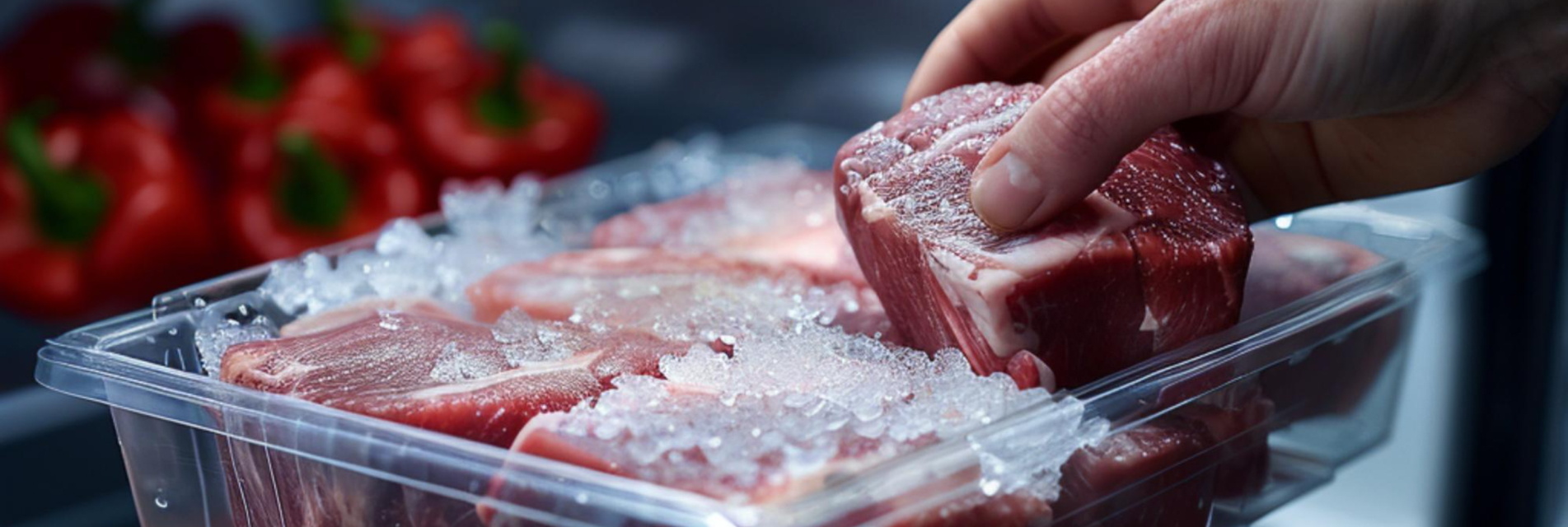
Is It OK To Refreeze Meat?
Not all food we consume is of consistent quality. Some might need freezing in order to ensure their shelf life. Some of the most popular food items that need freezing or thawing is meat. Throwing meat in your freezer is not all; there are various tips to preserve it in the right way.
Both refreezing and thawing are great ways to preserve foods that we ain’t eating right away. Whether you bought some extra steak in the market or couldn’t prepare your favorite chicken recipe, meat refreezing is a great option. So, is it ok to refreeze meat? Let’s learn more about it in today’s comprehensive guide.
Guidelines For Refreezing and Thawing Meat
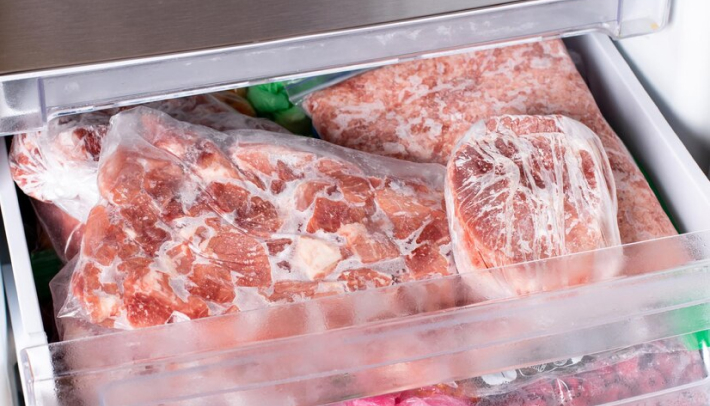
Food must never be thawed right on its countertop. One of the foremost considerations is to never thaw it at room temperature. Doing so will increase the chances of developing bacteria and, as a result, will make you sicker. Let’s have a quick overview of the right ways to preserve meat:
Consideration #1: Proper storage and slow thawing in the refrigerator are key to safely refreezing meat multiple times…
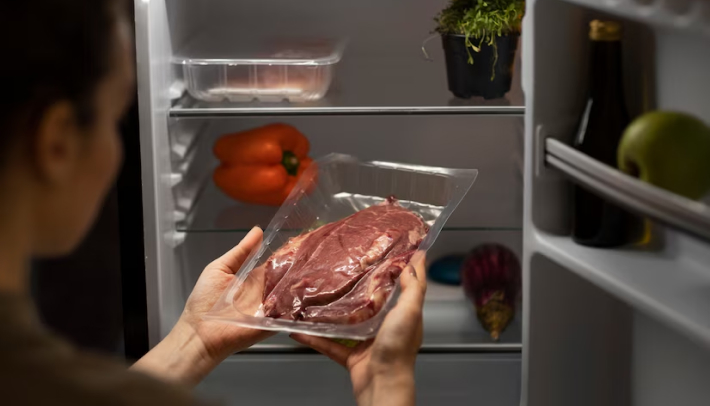
Are you cooking meat for a family of four? It makes sense to throw the entire pork shoulder in the freezer. Similarly, if you are cooking for two people, freeze them slowly, part by part. It becomes easy when you take things slow when it comes to freezing a huge meat chunk, defrosting, and cooking.
Getting meat right from the butcher paves the way for some freezer-friendly packaging. But you need to ensure more safety for the well-being of your family. So, the most ideal way to freeze the meat is to leave the packaging on. Your freezer will have different areas for storing food items. Look for the kind of packaging used for freezing meat.
Consideration #2: Refreezing meat using approved thawing methods, such as thawing in the refrigerator, can help maintain safety…
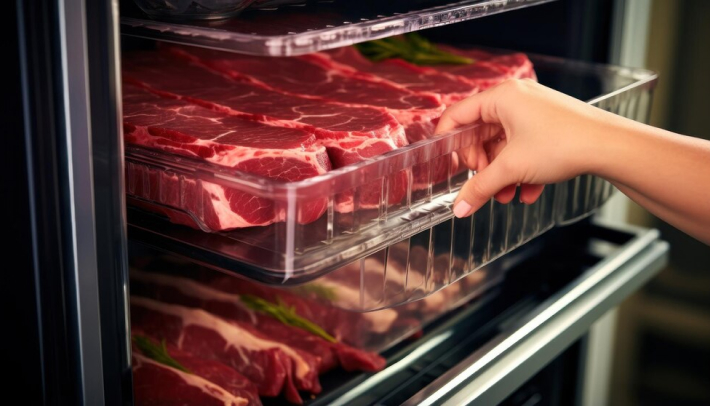
Planning things ahead will help save a lot of time while cooking. Large frozen items like meat pieces require frosting for at least 24 hours. On the other hand, small frozen food items like boneless chicken breast or ground meat do not need thawing for more than a day. However, thawing right into the refrigerator needs certain consideration.
- Firstly, a few areas of the appliance will keep it cooler than others. So, make sure to check where you are storing it. ‘
- Secondly, if you set your refrigerator at 35 degrees Fahrenheit, the food might take a lot of time to thaw.
Once you thaw it in the refrigerator, stew meat, seafood, and poultry items will remain of good quality for a day or two. It is impossible to refreeze the thawed food in the refrigerator without cooking it, and there can be potential quality loss.
Consideration #3: Refreezing meat does not pose immediate health risks if done correctly, but the quality of the meat may be affected…
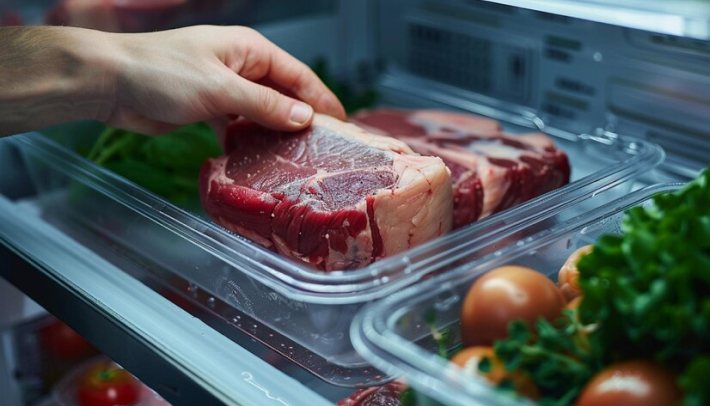
Refreezing poultry and other forms of meat is widely practiced by people who buy bulk quantities and store them for later use. All kinds of fresh meat can be frozen without any potential health hazards. Refreezing has no immediate health risks if you take all necessary precautions. However, it can depreciate the quality of the meat.
- Ensure to freeze the meat immediately.
- Put the food into packaging that is suitable for the freezer. Also, it ensures that it stops the loss of moisture and avoids air contact.
- The freezer must be set below 0 degrees Fahrenheit.
In order to avoid spoilage, you can chill fresh meat to a temperature of 40 degrees F. Be sure to do it within 24 hours, or else the quality of the food will be simply destroyed.
Consideration #4: The type of meat and the number of times it has been refrozen can impact the quality of the meat…
All this while, we have been discussing how refreezing meat can impact its quality. But in order to understand it clearly, let’s understand different types of meat refreezing. Not all meats respond the same when being refrozen several times. Here’s what you need to know:
Beef
There have been studies proving how different thaw-freeze combinations have impacted beef steaks. A blend of thawing, aging, and refreezing the steaks resulted in more extreme tenderness than fresh steaks. Freezing beef meats for a short duration helps prevent some downsides in red meat’s quality.
Poultry
384 Turkish supermarket shoppers were interviewed, which proved that refrigeration, microwaving, and countertops are the most common thawing methods for chickens. None of these techniques had an impact on the texture or color of the poultry. However, microwave or refrigerator thawing does cause 18% less shrinkage of the meat than other methods.
Lamb
Lamb meats, when stored and frozen at a certain temperature, undergo changes in quality markers such as texture, shrinkage, and juiciness. Lamb meats stored at a temperature between -58°F to -112°F were more tender than the ones stored at usual freezing temperatures.
Pork
When it comes to the effects of thawing, pork is no exception. Studies show how refreezing has effects on pork loin, too. Every sequence causes meat discoloration, although there are no significant health risks. Constant thawing and prolonged freezing might decrease its juiciness.
Fish
Did you know that you can also defrost seafood and maintain its quality just like fresh? Unlike meat, seafood can only be stored for 1-2 days if you have already broken the seal. However, experts suggest not defrosting seafood in vacuum-sealed packaging because bacteria form upon them.
Cooks Share Their Personal Experience Of Meat Thawing

Cooking plans have no certainty. There might be a pound of turkey in your refrigerator left to be cooked just when a co-worker calls in for a party. Situations are unavoidable, but one thing is for sure: freezing and thawing meat takes a toll on both its quality and taste.
Chef Dez shares how leaving meat at a normal temperature for an entire day can be extremely harmful to health. Food-born bacteria grow at a quick pace when the temperature is between 40F-140F. Further, he suggests how thawing in your microwave will put some meat parts in extreme danger. So, should we not thaw it at all?
Yes, you can! Transferring any type of meat to the refrigerator will help you, especially if you store it for 24-72 hours. Not only does it keep it in a safe-temperature environment, but it also ensures it doesn’t lose its nutritional value.
There are other alternatives, as well, for people who are into unprecedented cooking sessions. Seal the frozen meat in air-tight bags with just a little passage of air. Put it into a container, fill it with cold water, and then decrease the water flow. As the water keeps overflowing to the sides of the container, you will get efficient thawing without any downsides.
Concluding Words
Health is wealth; without maintaining our health properly, there’s no way we can survive. But when it comes to taking care of our health, particularly in terms of food habits, things go out of our way sometimes. If you are a meat lover who is fond of consuming frozen meat, make sure to consider the aforementioned factors.
While it’s good to satisfy your taste buds, make sure you do not compromise your health. And it’s a wrap on this comprehensive guide. Do tell us your way of thawing meat in the comment box below. Thank you for reading!
Continue Reading:



















All Comments
Josie Hane
9 April, 2024
Thank you for the comprehensive overview. It's cleared up a lot for me.
Reply
Scarlett Torp
19 April, 2024
Your blog is a true hidden gem on the internet. Your thoughtful analysis and engaging writing style set you apart from the crowd. Keep up the excellent work!
Reply